Babylon/GP at Hand – AI vs HI
With all the debate going on it seemed right to tackle the question of AI and in particular Babylon’s grand reveal yesterday.
The stage show was to accompany the latest marketing, not peer-reviewed and published, but designed to look like a scientific paper. The point is that they have trained a computer to pass an exam, for MRCGP.
Exams are necessary but not sufficient to be a GP, as I’m sure they would agree with RCGP, but what have they really achieved with 100 made up vignettes and patients played by GPs? Others will answer much better than me on the safety of the process (follow this brilliant thread by @DrMurphy).
I’ve done my own trial of the AI chatbot based on two diseases I’ve personally had in recent months.
“Toenails brown and broken” I start. “Please rephrase…”
“Brown and broken toenails”, and so on. Absolutely no idea from Babylon, who end up asking, “Do you have any other symptoms?”
So I move on to my next trial:
“Wrist pain”. At least they recognise this, and there follows over four minutes a series of 39 questions, of which only 3 seem to me to be relevant, and the diagnosis comes out as:
“8/10 broken bone in the lower arm. Go to A&E”. I answered everything honestly. What I really had was tenusynovitis, tendonitis of the wrist, and I guess rather more common than a broken arm.
The way we do this with askmyGP is to let the patient type in on the very first screen whatever they want, then search for self-care advice. Try it yourself on
Try anything, medical, colloquial, badly spelled, phrases, anything. It’s not perfect but for example my trials above got me in two clicks to fungal nail infection, and the other to wrist pain where tendonitis was one possibility.
I could dress this up as AI and call it the answer to everything, but really it’s just our own algorithm to search NHS Choices better than its own search. It works, and crucially it’s very fast, much faster than having to register wtih all the details and answer 39 questions one after the other. Remember that most patients’ first concern is speed and convenience and this search costs nothing.
We had a clever history taking algorithm in our version 1 software, and very good it was too, but not good enough. Patients got bored and GPs got fed up with too much irrelevant information.
The much simpler interface, respectful of patients’ ability to express themselves, has proven hugely more popular and that has enabled us to move over half the demand online with practices that really understand the benefits.
You have no doubt heard of Elon Musk, technology billionaire and founder of SpaceX and Tesla motors. On that company’s calamitous production problems, flowing from their overambitious automation, he said last month, “My mistake. Humans are underrated.”
You probably haven’t heard of Dr Ellen Stofan, former NASA chief scientist, who said last year they are sending a human to Mars because they’ll get more information, sooner and cheaper than by sending a robot.
I’m an engineer, as keen as anyone on the benefits of technology for humankind, but to get benefits we have to understand how computers can help, not pretend with smoke and mirrors. They are good at searches, communications and analytics, simple and repetitive tasks. For the tricky stuff, we need HI, human intelligence.
Who knows what they might do in some unknown future, but we have a problem right now in general practice, and it’s not a lack of intelligence.
There’s a fundamental difference between Babylon’s start point and ours. They work from DISEASE and have put together an algorithm to try to convert Q&A into diagnoses.
We work from DEMAND and very simply get it to the right clinician to triage in seconds and decide how to care.
That is only the start and tomorrow I’ll discuss our Systems Thinking approach to intervention, in which we’ll see that technology is but a small part.
Time will tell which gives the greatest benefit. but for a taster of how much can change in only a couple of weeks just listen to this interview with Dr Dave Triska .
Harry Longman
PS If you’re on Twitter, click to follow Dave @dave_dlt for some moving reports of the change they have undergone.
PPS Did you hear about the latest AC – Artificial Caring?
- Published in Comment
Babylon are getting speed and convenience right
You might be surprised to see the title, and unless you’ve been on a different planet recently you can’t have failed to notice the PR. Babylon/GP at Hand (their NHS service) are brilliant at finding the limelight.
The chief reason is: they offer something that people want, speed and convenience in getting medical help. Who knew?
The sites are very nicely designed, and if you think that’s easy, you haven’t tried. At present they are nicer than ours (watch this space) and looking attractive is important – people buy on emotion even if we kid ourselves that we’re logical.
People of all ages expect to do everything online, and with younger people a huge majority expect it to be on mobile. The experience must be seamless and beautiful.
A colleague of mine told how a complete stranger struck up a conversation while shopping last week. He told in amazement how he got help within an hour from GP at Hand.
But how? The business model is fantastic too. Low cost of service, with low estates overheads as so much is done remotely, and low usage from a largely fit, young, male demographic. As you all know they’ve been able to exclude children, the frail, elderly, chronically ill and women in danger of pregnancy – most of the people who need a GP.
NHS England pretty much told them to, incredible as it seems, undermining the shared risk model of local general practice. Malcolm Grant speaking today doesn’t seem to understand what this is doing to existing practices who are left with the rest. Anyway, the theme has been so well rehearsed elsewhere I won’t say more, but the reaction from GPs led by the BMA has been as pathetic as it has been predictable.
“Foul!” “Placards!” “Marches!”. Anyone would think the whole lot of them were a cartel bent on nobbling the competition with their newfangled ideas. But we know better. GPs are a fine upstanding profession who embrace innovation to improve their service to patients.
And that vote at the ARM to put a cap on daily contacts? The perfect gift for Babylon/GP at Hand, who will pick up more of those patients they have turned away. Only the profitable ones mind.
Next time I’ll look at what you can do to reverse the slide, and it won’t involve marching on Richmond House.
Harry Longman
- Published in Comment
Enjoy the summer?
Looking out on the rain, memories quickly fade of, for once, that glorious bank holiday weekend.
In GP land you may have noticed a lighter week too, because demand is predictably sensitive to weather – whether warm sunshine or heavy snow.
We need to qualify the effect however, because if your system is book ahead and wait, lower demand only shows up as a smaller backlog and maybe less pressure on reception. You will still see the same number of patients who have patiently waited whatever the urgency of their need, and it will feel like a treadmill.
The point of a demand-flow system is that there’s always plenty of capacity for the predicted demand, and if it comes in below prediction, you can enjoy the sunshine. A colleague of mine visited one practice we work with on Thursday lunchtime and there were just no patients, time for chat.
Now with summer on the way it is of course the perfect time to put that demand-flow system in place but let me tell you about a real problem we are struggling with.
I can name three practices right now where they are very clear on the challenges they face, they can’t cope with the workload, they know the service is terrible, and their receptionists are getting abuse every single day.
They’ve done a thorough analysis, all the surveys, know exactly what to do, and four GP partners can hardly wait to get going. But one, or perhaps two, partners have dug their heels in.
I’m a great fan of the partner model for a host of reasons, and I haven’t seen a better one, but it has its drawbacks. One partner can veto any change. They are condemning the others to live with the same or worsening situation. Why isn’t there a veto on doing nothing?
Fundamentally I think this imbalance in favour of inaction is holding GPs back, perhaps the whole profession, even if a majority can see what needs to be done.
Are you in this situation or do you have any suggestions?
Meanwhile two north east practices launch on Monday and let’s hope they enjoy the summer.
Kind regards
Harry Longman
PS: One who did act was Dr Sue Arnott and she joins us for this Thursday’s webinar at 1pm.
Online consultations – what is working and why?
Some background on how she came to be running a 4,700 practice as a single hander here.
Many have asked for the first in the series recorded, so it’s here, 45 minutes, “Exploding the myths of online consultations”
- Published in News
Revealed: the tiny take up of NHS111 digital and its alarming dispositions
NHS England has trialled four digital versions of NHS111 in an attempt to shift channel from telephone to online.
An internal report dated December 2017 and obtained through HSJ reveals the astonishingly low take up of these heavily marketed pilots. Download the full report here:
Data contained within the report shows the four trials covered a population of 7.5m for the period February to June 2017. The total completed digital triages came to 8671.
A separate chart shows NHS111 telephone volume at around 1 million per month, for a population of 50m.
The digital trials covered around 15% of the population, and over the 5 months of the trial would see pro rata around (15% x 1,000,000 x 5 months) = 750,000 calls.
Digital triages therefore accounted for 8671/750,000 = 1.2%
We know that the digital option was heavily marketed in the four pilot areas, in the public domain, GP surgeries and through IVR messages. We have no idea of the costs incurred.
We can see by comparing the charts that conversions from “I registered or downloaded the digital solution” to “I completed a triage” range from about 60% for Babylon and Sensely to 30% for Pathways and 10% for Expert 24.
Figures given on dispositions are compared to 111 phone triage dispositions and what is striking is the similarity. Much is made of the 18% advised to self-care. However, it is very disturbing to see 20% advised to call 999 or go to emergency. Compared with GP audits of their demand, which they rate at around 0.5% as emergency, these are astonishing numbers. Work we have analysed with a GP led OOH service showed GP disposition to ambulance at 1.4%.
Following the advice of the algorithms would multiply use of emergency services by a factor of 10 to 20.
Worse than this, we suspect that the low take up means the diseases entered are highly unrepresentative of the overal disease burden, and are likely skewed to conditions which are “easy to triage” and therefore less acute.
Given the above analyses, and if you knew the eye-watering costs incurred, what would you do?
Harry Longman
PS The conclusion of the report’s author may surprise you, page 4:
The learning from these pilots supplemented with data from other health systems and from
other online services would continue to support the case for an online interface for urgent
care. This evaluation does not recommend one product over another but demonstrates that all
products have some similarities and differences but all products tend to support channel shift
and management of demand whilst providing patients with a good experience.
To gain further understanding of NHS111 Online and the impact on the health system, larger
data sets and linked data will need to be considered. Therefore, the expansion of pilots and
further analysis will enable a more robust evaluation.
- Published in News


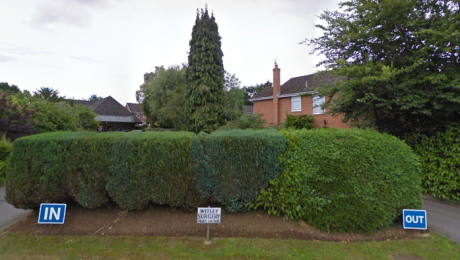
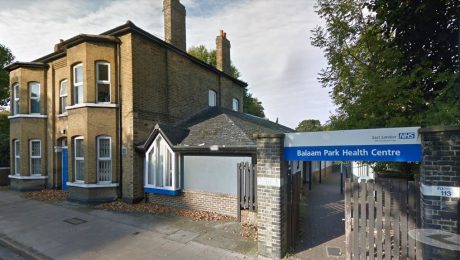
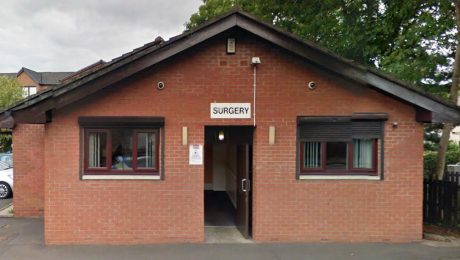



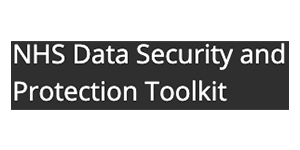
Babylon/GP at Hand: GPs need to change their game
In this third instalment on Babylon/GP at Hand the cards are on the table, and you’ll see why.
I’ve looked at what they are getting right, patients’ desire for speed and convenience (don’t blame the patient, think of the last time you were one). I’ve looked at their AI claims, partial, unproven but fundamentally a disease based rather than demand led model.
Now the nub of it: GP at Hand is disrupting traditional practice with a city wide (London only for now) service attracting young, fit, male and mobile adult patients – your most profitable demographic. The exclusions effectively mean
Even a normal healthy female would go through four changes of GP to use this service during her lifetime.
Infant – no. Young adult – yes. Mother – no. Older adult – yes. Elderly – no. “All the world’s a stage…” but only bits of it are covered by NHS Babylon. (Kudos to them for getting Malcolm Grant onto their stage on Wednesday night btw. What was he thinking?)
Let me be absolutely clear where we stand: for high quality general practice covering the whole person, life, family and community. Sounds rather like the RCGP, indeed the NHS. It has to be local to do that (and unit size is irrelevant, except to patient satisfaction which goes up as size goes down).
But to compete against the likes of GP at Hand, and to be profitable in ever more squeezed circumstances, you have to work much more efficiently. Not lilttle 3% tweaks, but 30% leaps. That is exactly what we do.
That kind of efficiency gain (Dr Sue Arnott, single hander, has 4,600 patients) is changing the economics.
The normal experience of askmyGP patients is to send a request online, get a response within minutes and for the 30% or so who need to be seen, it’s today. The record posted last week was a feverish child seen within 12 minutes of sending. GP at Hand can’t touch that.
Safety must be paramount, and two features of the system design are crucial. Firstly it enables you to be responsive, easier to contact by phone as well as online, and we know the average practice should expect a couple of emergency presentations each week. I would never have made this claim, but Dave Triska tweeted on Wednesday, “so far I can count 3 lives saved in 4 weeks by this method.”
Secondly, it enables and encourages continuity by allowing patient choice of GP, and giving GPs total flexibility within the day to provide. Here is today’s BMJ paper, better continuity reduces mortality.
Increasing numbers of practices are asking us where to start, without leaping into the unknown (really not unknown, the once familiar delight of being a doctor) and that’s what we do wtih Pathfinder – Could you be ready to change?
It’s the kind of change which is necessary to stay the same. Don’t give in. Don’t see decline as inevitable. Don’t expect bungs or contract changes to bail you out – not this five year plan.
Use the power you already have over your own destiny.
Harry Longman
PS Please don’t believe me. Believe the GPs doing it, and if you haven’t yet, hear the amazing interview with Dr Dave Triska.
PPS This tweet from Dr Lis Flett moved me: “One of the two patients who wanted a face to face appointment this morning (that’s right, 2) sat with me for half an hour. Many problems solved, patient felt listened to: Medicine the way it should be.”
PPPS Just had an email from Babylon “Babylon’s AI is on par with doctors”. You. Could. Not. Make. This. Up.